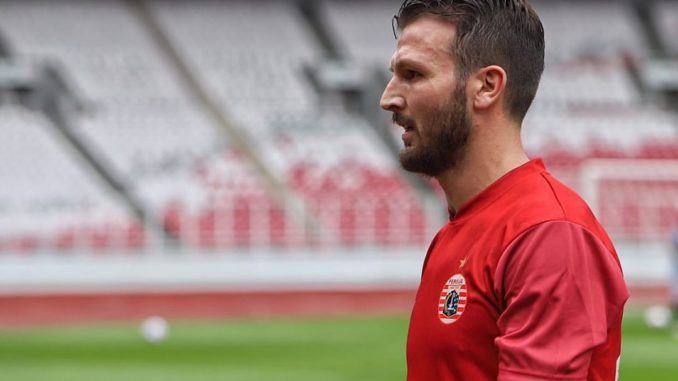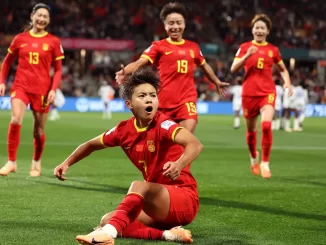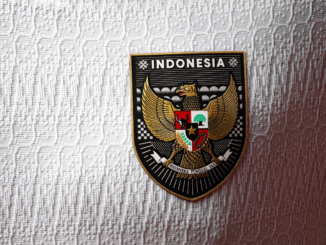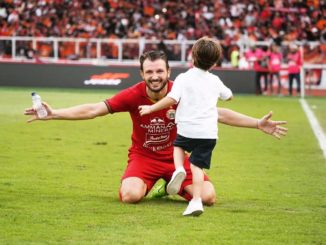
When former Juventus and Italian international defender signed on the dotted line for Persija Jakarta at the start of the year, no one could’ve foreseen that just a few months later he would be holed up in his Jakarta apartment, unable to go outside.
If such a scenario were presented one might assume his poor performances had perhaps upset the club’s volatile supporters, known as the ‘Jakmania’. No one could’ve foreseen the near worldwide lockdown as a result of the Coronavirus pandemic.
But the worsening COVID-19 situation in the Indonesian capital makes it too dangerous for the Lombardy native to risk exploring the city he now calls home.
The 33-year-old readily admits that watching the horror in his homeland, one of the worst hit countries anywhere in the world, from the other side of the world has been challenging.
“To be honest, one on hand I’m lucky because here (Indonesia) the situation is, more or less, until now normal,” he told The Asian Game from his apartment in Jakarta.
“But every day I feel a not really good sensation because I’m really scared for my family and friends I have there, and for Italy. From where I was born (Lombardy) is the worst effected in my country, (so) I really hope everything will come to an end as soon as possible.”
Former teammates and friends were some of those struck down, adding to his sense of fear, but fortunately his family has so far escaped unscathed.
“Fortunately my family, no. But I have friends that have had the virus, and fortunately without serious problems,” he admitted.
“My friend and ex-teammate (Manolo) Gabbiadini, he played for Sampdoria, he was affected. He told me it was not really dangerous for him, he just stayed at home and had a bit of a fever and pain, but that’s it. I had another friend who worked for Chelsea who was also affected.”
Locked in self-quarantine with his wife and young son, Motta, who also enjoyed spells with AS Roma, Atalanta, Udinese and Torino across a decorated 10-year career in Italy, that also saw him capped by the Azzuri, is choosing to take a positive outlook on the current situation, but remains fully aware that the situation around him continues to get worse.
“I’m a kind of character that I try to have in mind only positive things to transmit to my children, to my family, (and) to my wife,” he explained.
“In this moment, unfortunately for the world, we don’t have too many positives. But in this moment I get to spend a lot of time with my family, and at this moment I am not scared because we are in self-quarantine and we stay at home.
“But of course I am seeing the numbers in Jakarta and Indonesia and they are getting higher. I hope, the same hope I have for Italy and for Spain and the rest of the world, the situation can finish as soon as possible.”
Motta’s decision to sign for Indonesia’s biggest club attracted a wave of headlines at the start of the year, and for Motta it was love at first sight.
“When you go to the other side of the world, it’s not easy. You need to know the situation, you need to know everything,” he explained.
“Persija were really kind, they told me they wanted me here, they wanted me to know the country, the place, the city. From the beginning I said my life is two F’s – football and family. My family is too important to me, and I cannot decide on my own to go to the opposite side of the world.
“I saw what this beautiful city can offer for my family, and after that I said yes because the football is perfect; Persija is a big club with big targets and big fans, big stadium, and amazing atmosphere.
While big name foreign signings in Liga 1 have had mixed success in recent years – Motta joins on the back of Michael Essien, Peter Odemwingie, Carlton Cole and Mohamed Sissoko – the way he has embraced life in the Indonesian capital suggests he would be one that the Jakmania remember fondly when he departs.
And as Motta and his family have embraced Jakarta, Jakarta has embraced them.
“Jakarta for me is a really big surprise, because from the beginning the people here, the Jakmania, our fans and all of the people of Jakarta, they make me feel at home,” he said.
“They are really welcoming people. They were supporting me from the beginning, from the first day, even when I was in Italy and hadn’t arrived yet.
“I have to say thank you to them, because in the first match I played at ‘GBK’ (Gelora Bung Karno Stadium), the atmosphere was amazing. They are supporting me from the beginning, every day I receive a lot of messages with love and I have to say thank you.”
That atmosphere, that he first experienced on a pre-season tour with Juventus back in 2014, was a big pull in getting him to Jakarta in the first place.
“I remember the stadium was full,” he recalled. “I remember the passion they had. And of course after that sometimes you think, ‘OK, this is the All-Stars of Indonesia against Juventus’, but after that I understand that every game for them is like this.
“Persija for them is like a religion, it’s the most important thing in their life. And this is something beautiful.”
The Gelora Bung Karno Stadium, or GBK as it’s affectionately known, on the edges of Jakarta’s city center, is famed across Asia as one of the continent’s truly iconic stadiums, with an atmosphere to rival anything from around the world.
Motta, during his career in Serie A, has played at some of Italy’s most intimidating stadiums and in some of the most hostile environments, such as the Derby della Capitale between AS Roma and Lazio, but admitted the GBK rivals anything he has ever experienced.
“I played in some really big teams in Italy, and the atmosphere here is like the atmosphere at the Olimpico in Roma when I played for Roma, or when I played against Milan at San Siro when the stadium was full, or at San Paolo (Napoli).”
Just when Motta gets to next experience that atmosphere, however, remains to be seen.
Photo: IG/marcomotta47
Listen to Marco Motta on Episode 51 of The Asian Game podcast.




